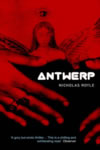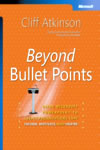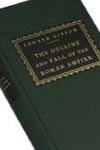The White Sox win the series! Who would have thunk it. All the sports shows this morning are talking about the Sox fans and the Cubs fans, those armies of the patient. Oddly, they miss two key points.
These Sox are strangely like that last Sox team to win the pennant, the hitless wonders. The story of the White Sox was, for many years, pretty much the story of the modern Boston Red Sox: they were for many years a good team that was consistently beaten by very good teams and by a Yankee dynasty. They broke through to the pennant in '59, of course, but the hitless wonders turned out to be a simple fluctuation, a second-place team on a streak. And that, I suspect, is what we saw this year: a pretty good team that did pretty well and that will be remembered as something that happened between the Twins and the Indians.
The Cubs, on the other hand, used to be truly awful. Year after year, the Cubbies defined badness in just about every facet of baseball. They were a combination of the bad aspects of the Nationals, the Royals, and the Tigers. They were hopeless and hapless and absurd; the White Sox won (or nearly won) and the Cubs lost. But the Cubs had a nicer park, and Cubs fans learned to appreciate baseball because they sure didn't have much to cheer about.
I started out in the Sox camp Joel Horlen! Juan Pizarro! Gary Peters! Ward to Buford to McCraw, round the horn. Al Weiss! By '64 or '65, though, Professor Hannaford had drawn me into the Cubs orbit, the land of sunlight and ivy and connoisseurship.
Another thing to remember: the whole North Side/South Side division they talk about on the TV is coded language for a complex of ethnic and social affinities that once were so obvious that they were unmentionable and that, with a century of abrasion and enlightenment rubbing at their edges, are now almost forgotten. Comiskey Park stood in an immigrant community. Hull House was not far away. There were lots of poor people -- Eastern Europeans, mostly -- in the neighborhood. Even in my childhood, they had lines at Comiskey for kosher hot dogs because they made money that way.
In time, immigrants got old, their kids got richer, the South side became home to lots of Black people from the South where there wasn't that much baseball (and where the Cardinals were the home team anyway). As a result, the Cubs -- who found themselves in a part of town that started out Irish and Swedish and attracted lots of Asian Americans (many fleeing California's camps after the war) and Latin Americans -- would play bad ball and still outdraw the contending Sox, year after year.
Most teams have a Beloved Player: the Sox are a weird exception. Ernie Banks for the Cubs: let's play two. Hank Greenberg for the Tigers, then Kaline. Willie Mays, of course. Ted. Mickey. Stan Musial. You know 'em all. But who is the Sox hero of yore? Cap Anson is a long time ago. Shoeless Joe was a cheater, and also a long time ago. Minnie Minoso, I guess, is the man.








